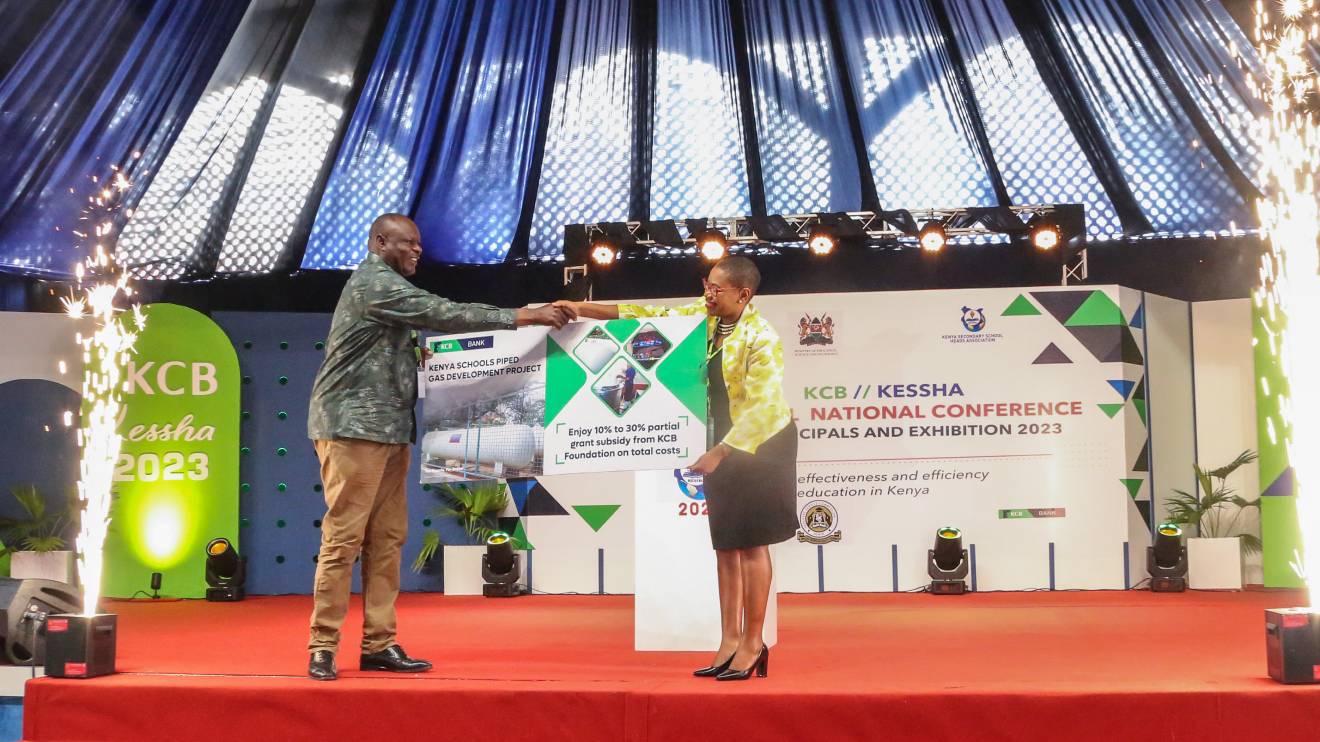KCB Bank, in collaboration with its social investment arm, KCB Foundation, has unveiled an ambitious plan aimed at providing financial support to learning institutions for their transition to clean energy cooking solutions.
The initiative seeks to address the prevalent use of firewood in Kenyan schools, which accounts for a significant portion of fuel demand and poses substantial financial and environmental challenges.
Under this program, KCB Foundation will offer a partial grant ranging from 10 per cent to 30 per cent of the total cost of purchasing and installing Liquified Petroleum Gas (LPG) equipment to eligible learning institutions.
The remaining funds will be made available through pre-arranged financing solutions, ensuring accessibility to both public and private secondary schools across the country.
This move comes in response to the alarming fact that approximately 90 per cent of public schools in Kenya rely on firewood for cooking, incurring annual expenses of up to $20,000 solely for wood fuel.
Read More
As a result, cooking fuel stands as one of the most substantial costs within schools' meal budgets.
Caroline Wanjeri, the Head of KCB Foundation, emphasized that the implementation of the clean cooking program signifies the bank's collective commitment to supporting Africa's pursuit of Sustainable Development Goal 7, which emphasizes universal access to modern energy services.
Moreover, it enables KCB to amplify its efforts in promoting the adoption of clean and modern cooking solutions that require less fuel, minimize smoke emissions, and reduce greenhouse gas emissions.
Wanjeri stated, "Schools have been identified as significant contributors to inefficient cooking practices, consuming over 685,000 tons of firewood and charcoal annually. This has far-reaching consequences for the environment, economic development, and public health, especially when considering that nearly 2.6 billion people worldwide still lack access to clean cooking solutions. Our aim is to position schools as the cornerstone of Kenya's sustainable future, powered by affordable, reliable, clean, and modern energy accessible to all."
To date, KCB Bank has disbursed loans amounting to Sh60 million to 30 schools nationwide, with KCB Foundation contributing Sh30 million in grants during the pilot phase of the program.
"KCB has consistently taken the lead in mobilizing the financial sector's climate action and supporting carbon-positive projects in society. By facilitating the transition to cleaner fuels such as LPG, we will enable learning institutions to achieve up to 40 per cent savings in their cooking budgets, while simultaneously promoting better health and environmental outcomes, improving kitchen hygiene, and motivating workers," Wanjeri further explained.
She also highlighted the bank's ongoing "Linda Miti" greening program, which has resulted in the planting of over 160,000 trees across 943 schools this year, emphasizing their commitment to a just energy transition.
Through this initiative, KCB Bank aims to empower schools to embrace clean and sustainable energy solutions, paving the way for a brighter and greener future for Kenya's educational institutions.












